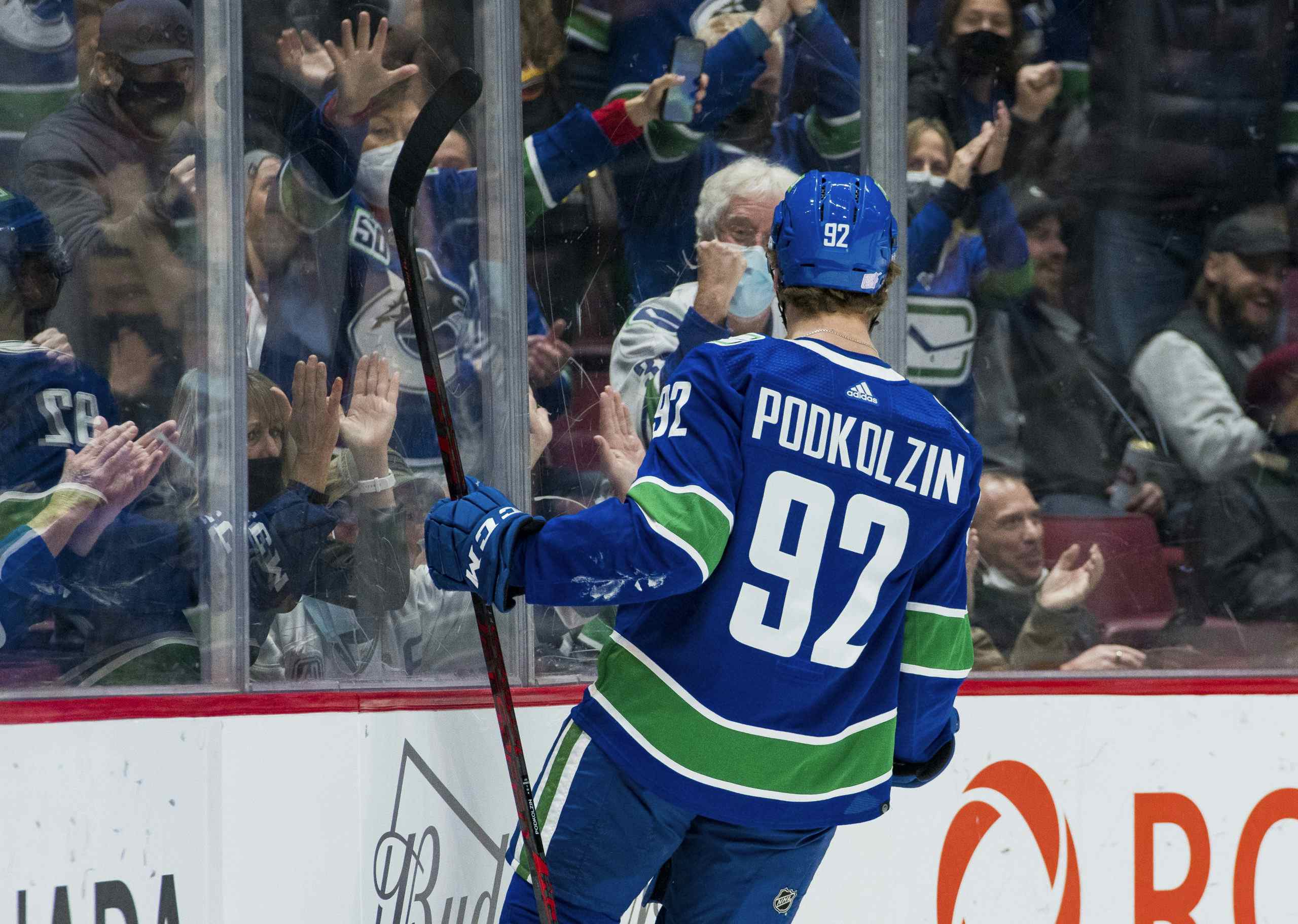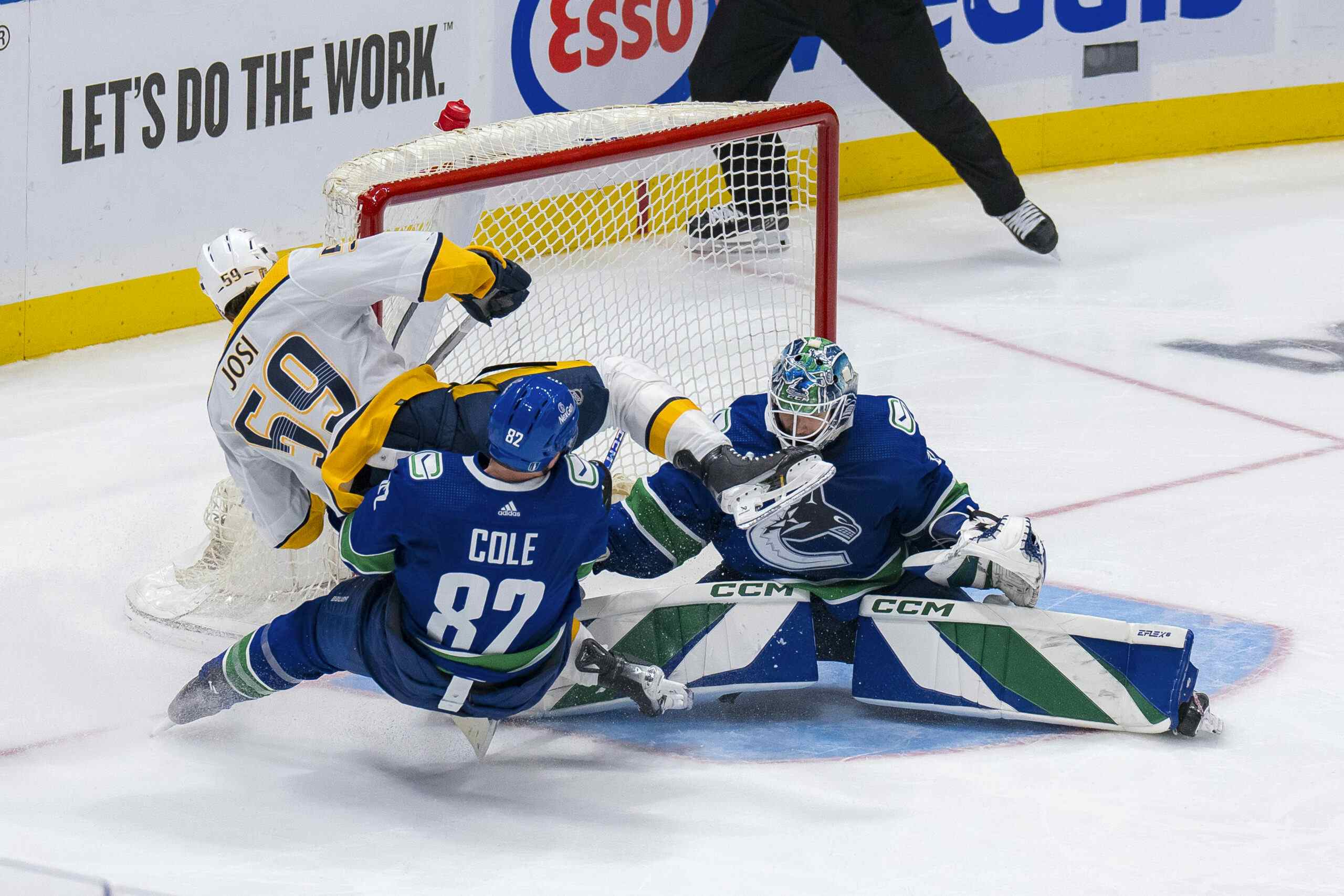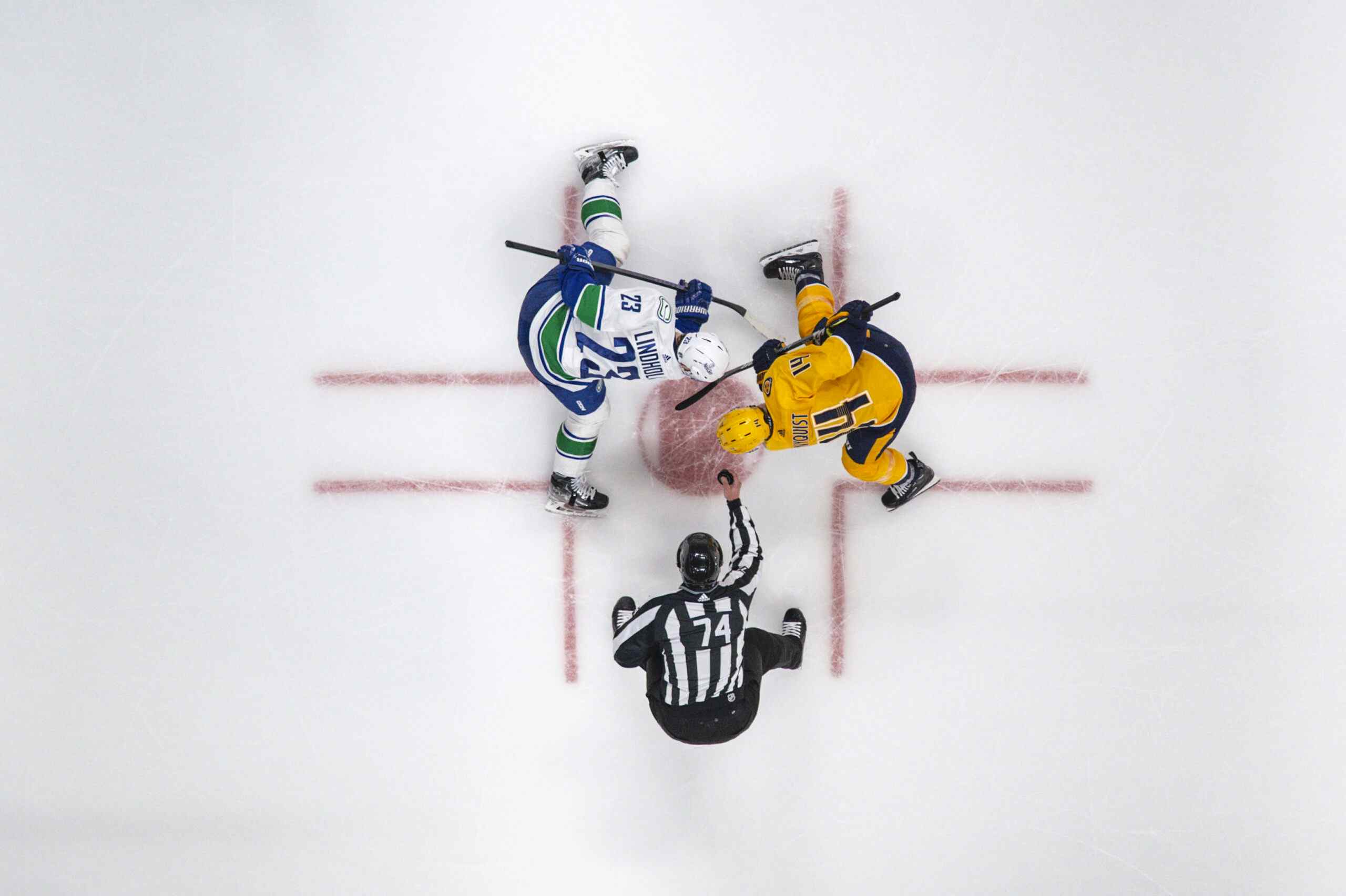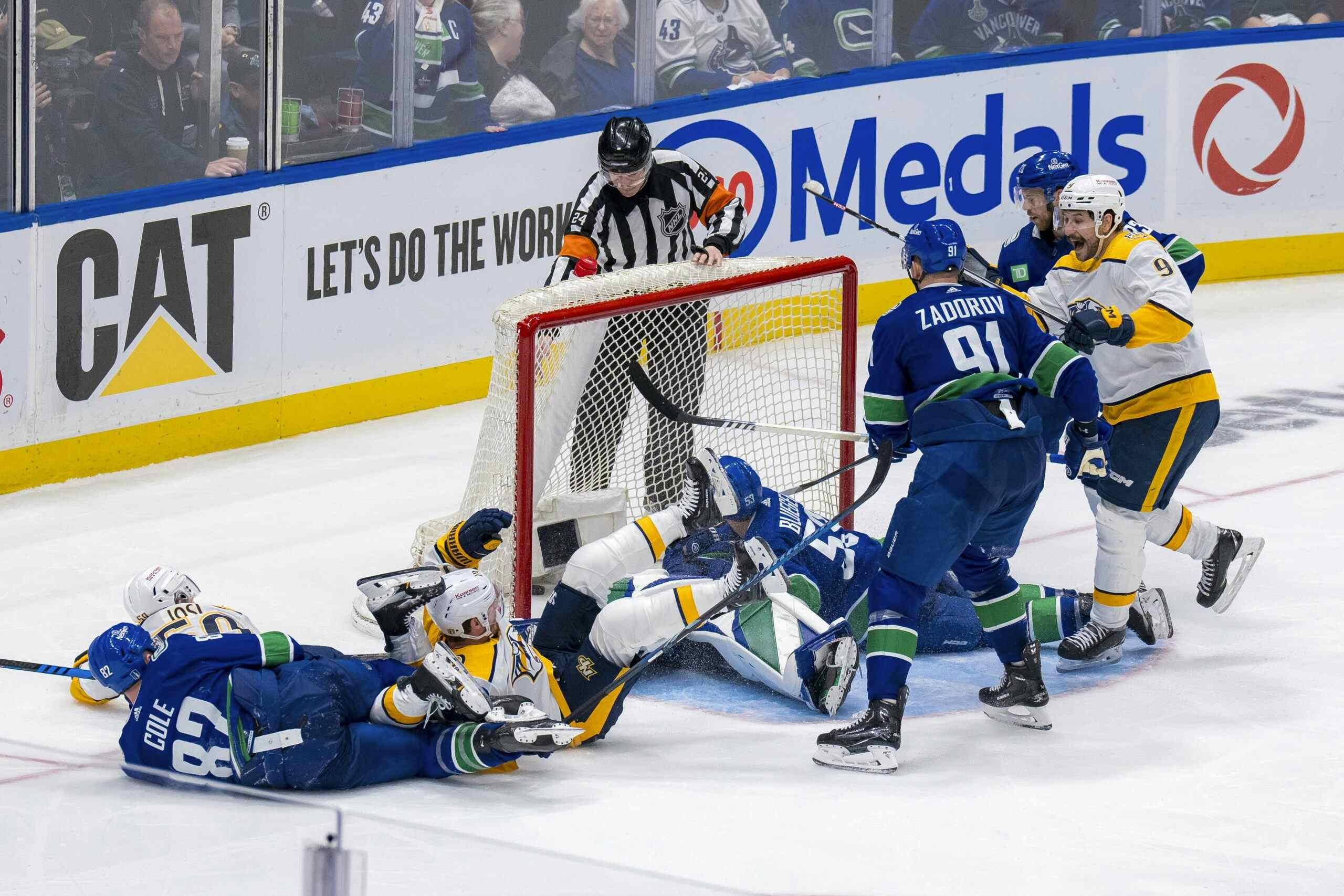The real problem people have with Vigneault is that the Canucks’ regular season performance appears not to carry over to the post-season. Vancouver have gone 248-162 in five out of six years the Canucks have made the playoffs under Vigneault, and pro-rated to 64 games, that would make the Canucks 39-25 with the same win-loss record.
People look to different records between the regular season and the playoffs as an indicator that the playoffs are somehow a different brand of hockey. That’s absurd. The ice is still 200 feet long by 85 feet wide, the pucks are the same weight, there are still five skaters aside plus a goaltender. The major differences between regular season and playoff hockey are a reduction of back-to-back games, continuous overtime, a more randomized application of the rulebook, and better hockey teams.
Nobody ever says that Rounds 3 and 4 of a golf tournament are different from Rounds 1 and 2 of the same tournament. All that’s changed is the field has been reduced. You get a few wonky narratives but to anybody paying close attention, it’s the same golf with better golfers. This is the NHL playoffs. They snip half the field every April and start reducing the number of teams.
That’s why I’m wary of looking at numbers like this, Fenwick Tied from the regular season to the playoffs for the Canucks in the last four seasons:
| | Season | Playoffs |
| 2012 | 52.8% | 51.3% |
| 2011 | 53.6% | 57.3% |
| 2010 | 49.6% | 55.5% |
| 2009 | 49.5% | 45.3% |
Regression (properly called regression to the mean) is not a difficult concept. There’s no complicated math involved, hardly even any simple math in fact. There’s no necessary averaging; you don’t have to do long-division. You don’t even have to add anything. Understanding regression involves nothing more sophisticated than knowing whether a given number is higher or lower than another.
The Canucks scoring chance total was well off what their shot rates would have otherwise predicted. We know that that can’t hold over the course of the entire season. But that’s on them, at least this season:
The problem is that luck, in the common tongue, is not the same thing as unsustainability. Calling something unsustainable is purely descriptive: based on the evidence of the percentages, it cannot be expected to persist. Calling it lucky or random is adding a value judgment. Luck implies not just a result but a cause, and that cause is the chaos of the universe. Luck is the opposite of skill.
But spikes in performance* are still an element of skill. They’re not accidents; they’re not weird bounces or freak uninjuries. A player on a hot run is not having a series of encounters with enchanted pucks that just leap unbidden from his stick to the twine. Except in very rare cases, he’s not usually having an extra puck go in off his ass every other night. He’s not benefitting from anything that a layperson or a layplayer would identify as ‘luck’. Luck is winning the lottery. Luck is getting goals you never expected or intended. A player on a hot streak is still doing the things that lead to his success. He is still getting in position, he is still taking the shots, he is still in a very substantive way making his luck. He is, often, actually having a run of making good plays. The ability is real. It’s just unsustainable.
Can we look at the Canucks’ impossibly low shooting against the Bruins last year as a failure to adjust to Tim Thomas’ style? Yes, but over the course of the season, you know the Canucks would make the necessary adjustments. Fitting things together in five games is a difficult task, but you can certainly pin some blame on the coaching staff for the Canucks being able to solve Thomas.
There is some element of luck. One goalie earned a Vezina/Conn Smythe double and it isn’t too early to assume that Jonathan Quick might do the same thing. Then there are the obvious things like goal posts and bounces in the slot that were just cleared away, or that pass being broken up in the zone just as a guy was going to get some shooting space.
But we need to look at wins and losses, not shot differentials. We need to conclusively be able to say a team is better or worse in the playoffs.
| Year | Series | Season W | Season L | Playoff W | Playoff L |
| 2007 | DAL | 2 | 2 | 4 | 3 |
| 2007 | ANA | 1 | 3 | 1 | 4 |
| 2009 | STL | 3 | 1 | 4 | 0 |
| 2009 | CHI | 2 | 2 | 2 | 4 |
| 2010 | LAK | 3 | 1 | 4 | 2 |
| 2010 | CHI | 2 | 2 | 2 | 4 |
| 2011 | CHI | 2 | 2 | 4 | 3 |
| 2011 | NSH | 2 | 2 | 4 | 2 |
| 2011 | SJS | 3 | 1 | 4 | 1 |
| 2011 | BOS | 0 | 1 | 3 | 4 |
| 2012 | LAK | 2 | 2 | 1 | 4 |
| | | | | | |
| | TOTAL | 22 | 19 | 33 | 31 |
Pro-rated to 64 games, that 22-19 record becomes 34-30, meaning the Canucks have been, over 64 games in the playoffs, one game worse in the playoffs than the regular season. The margin is slight, and doesn’t change for many coaches.
Todd McLellan, a favourite among Canuck fans as a unicorn to fill a coaching spot that is already taken, is 20-24 in the playoffs, but 15-21 against those teams in the regular season. That’s within a couple of wins. Then again, Dave Tippett, who made the Conference Final for the second time in his coaching career last night, has been horrifically out-matched in the post-season, going 32-37 against teams he was otherwise 31-26 against in the regular season.
John Tortorella, who has won a Stanley Cup and is up 3-2 in his own series, is 35-34 in his playoff career against teams he was 21-25 against in the regular season. A slight increase there, but not too much.
I don’t know if win percentages clearly increase or decrease enough to really show that there’s some extra talent, or that coaches find success in their own particular brand of playoff hockey. Sure, you see an uptick for Tortorella, but, gee, we see that for Todd McLellan too, and he hasn’t won a Stanley Cup and has coached a team that’s known for playoff disappointments over the last few seasons. Dave Tippett is awful in the playoffs, but hang on, hasn’t he coached his team to the Conference Final this year based purely on his system?
If we’re looking at playoff record against the regular season, I don’t think we’ll find the answer as to who is getting coached or out-coached. From a pure wins and losses perspective, the Canucks are about as good in the regular season as the playoffs, and we all know how good of a regular season team they are.






